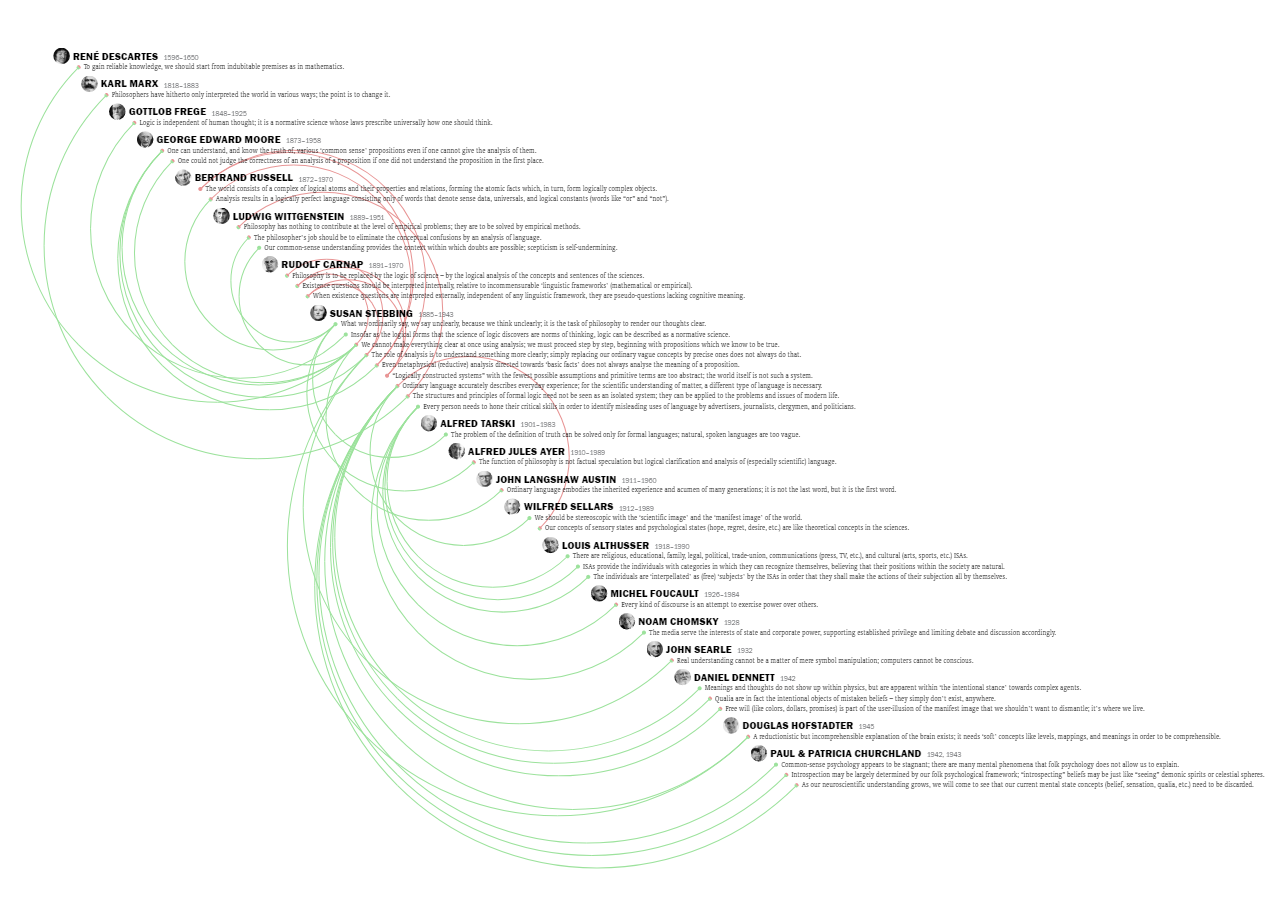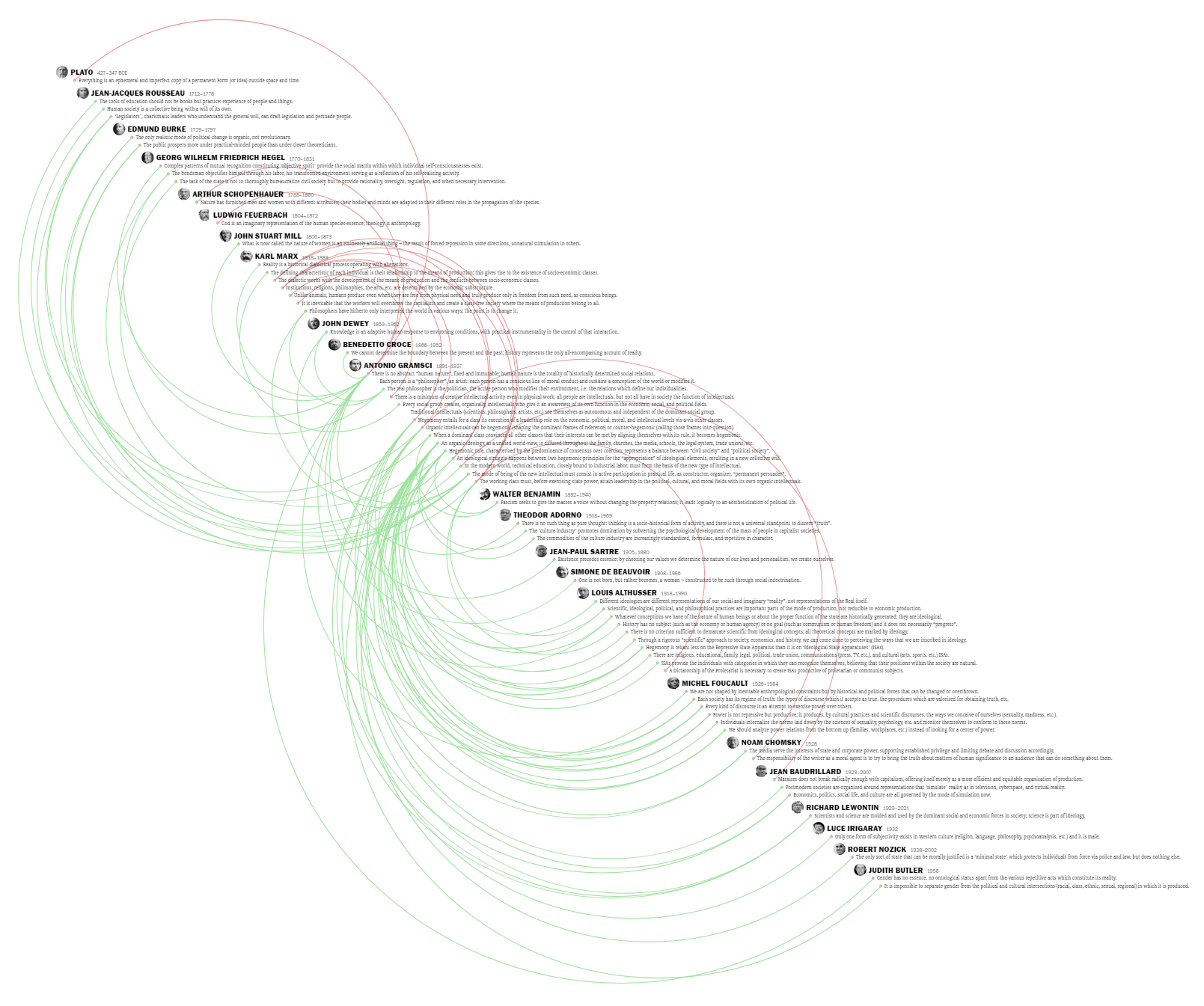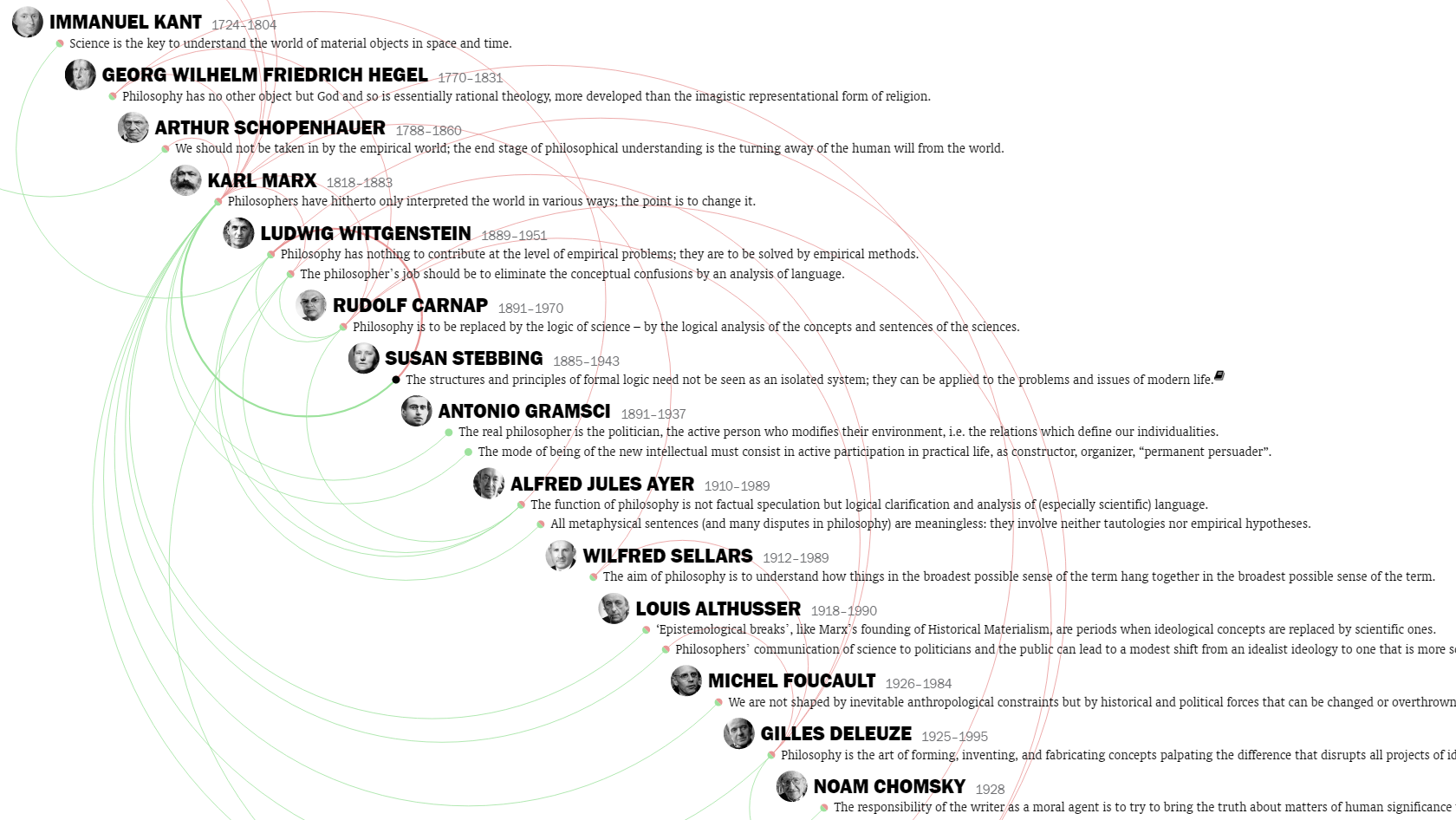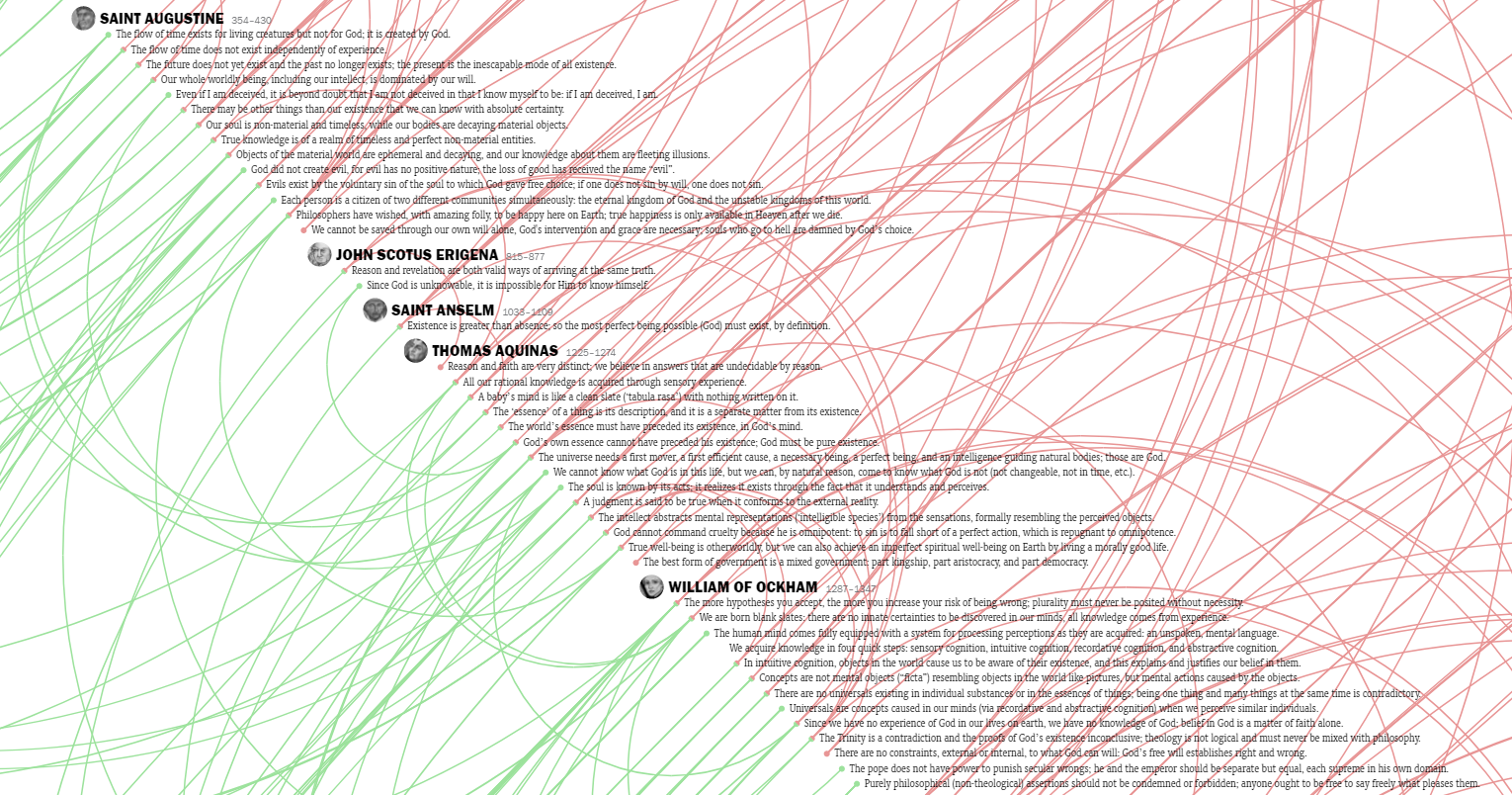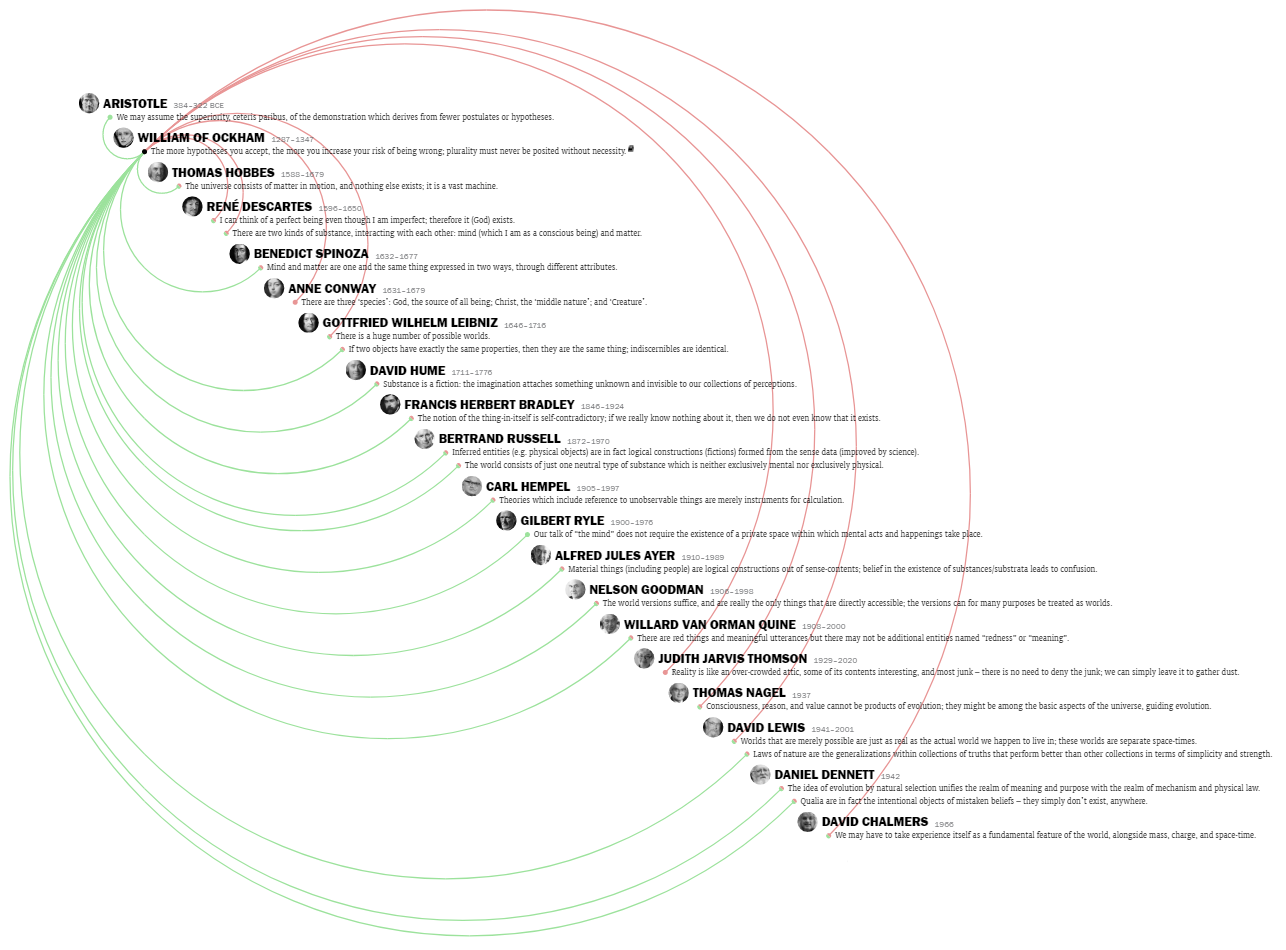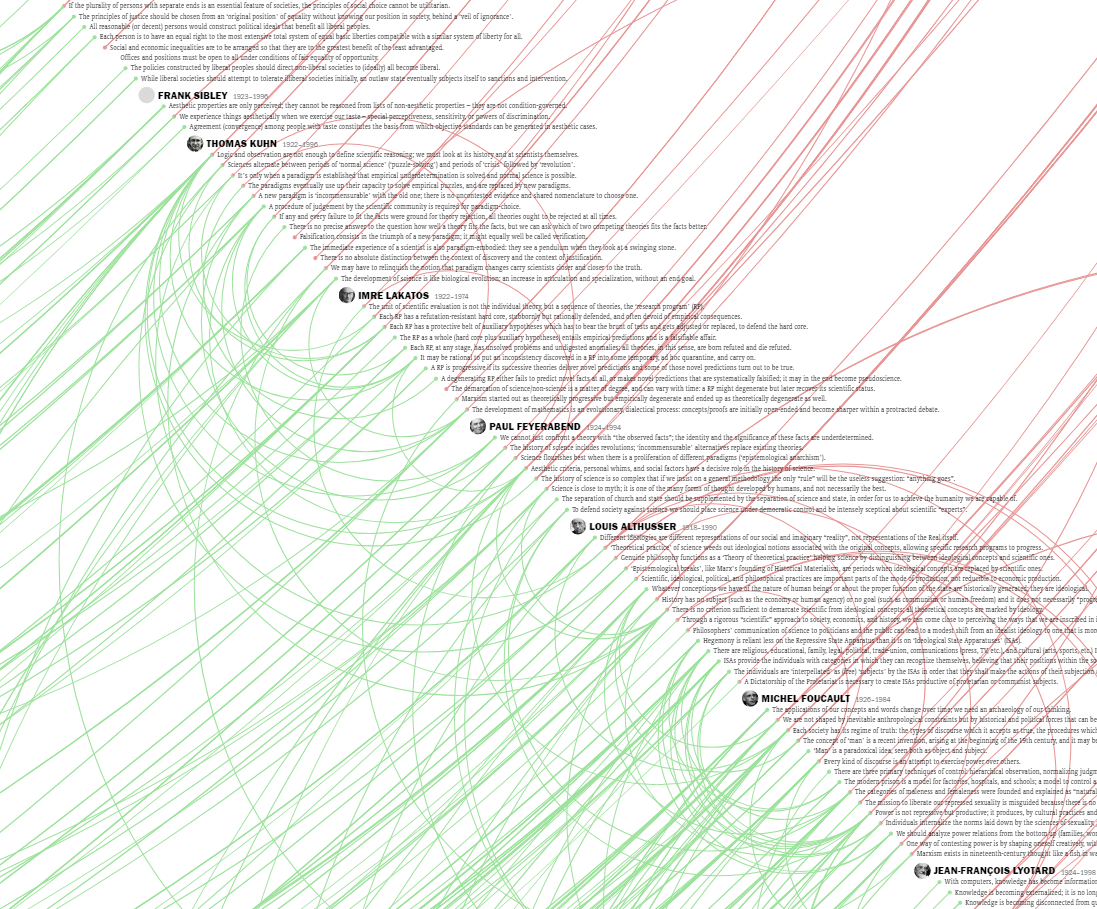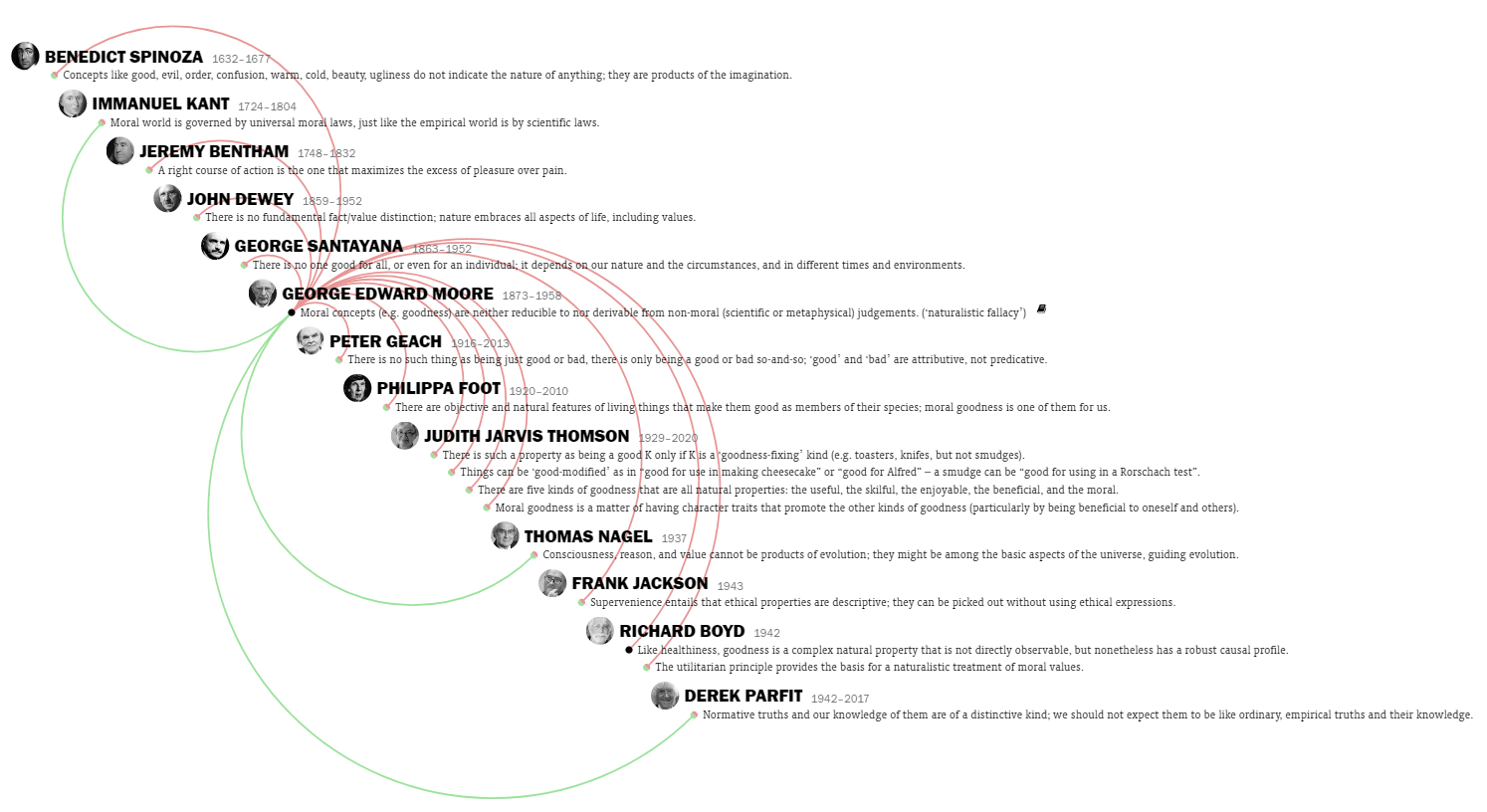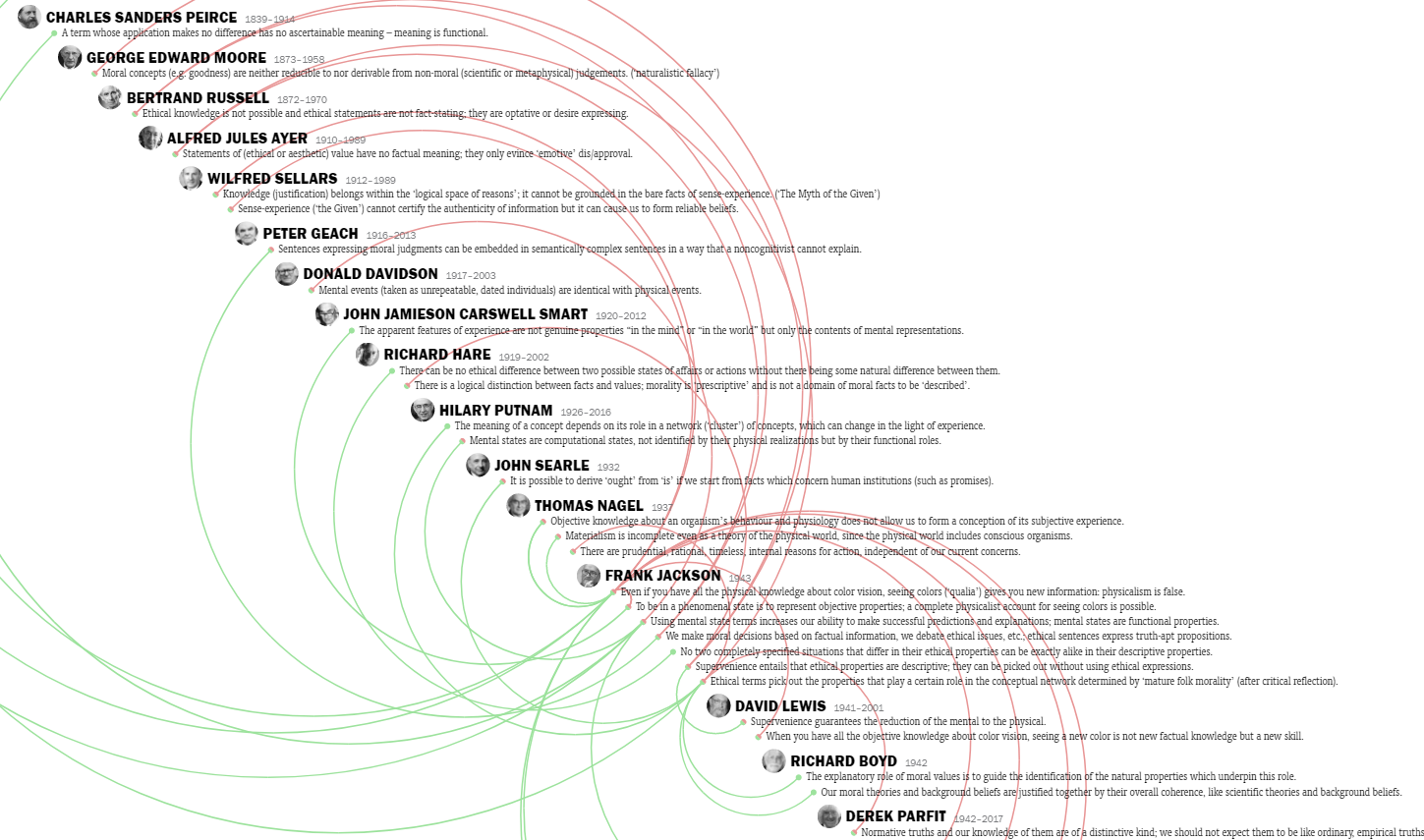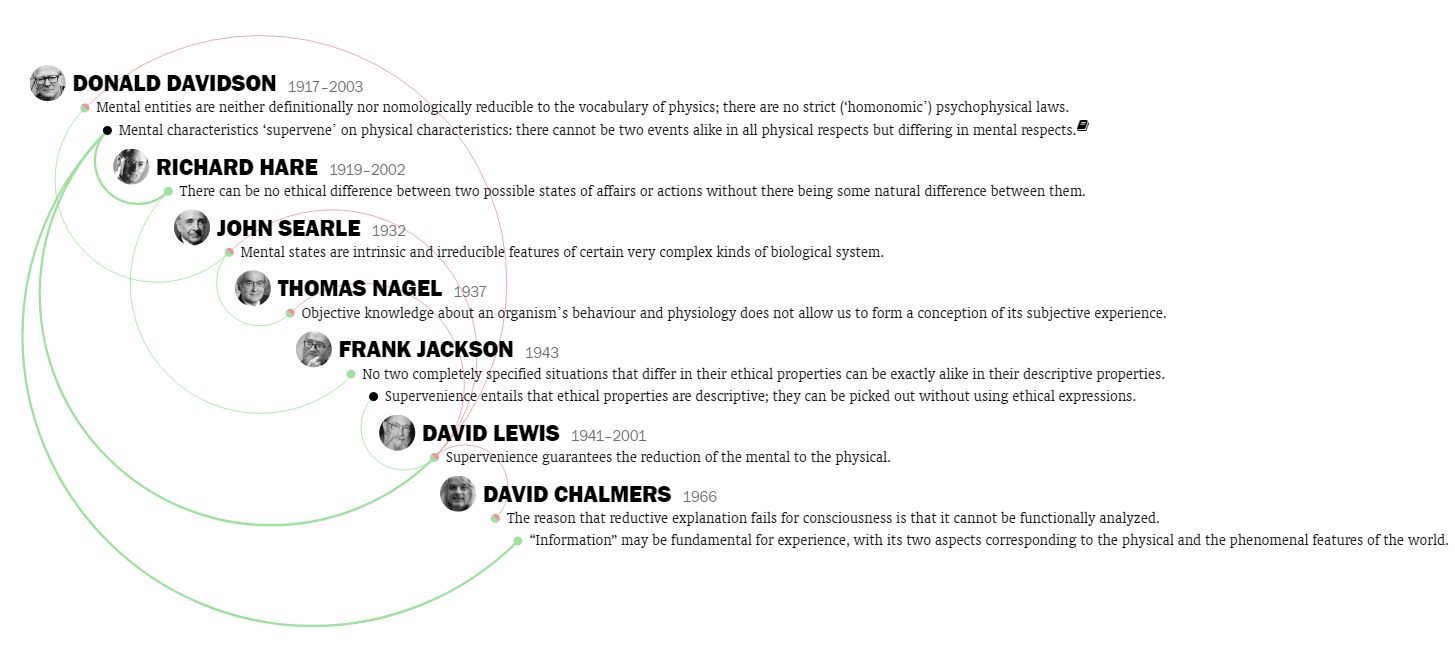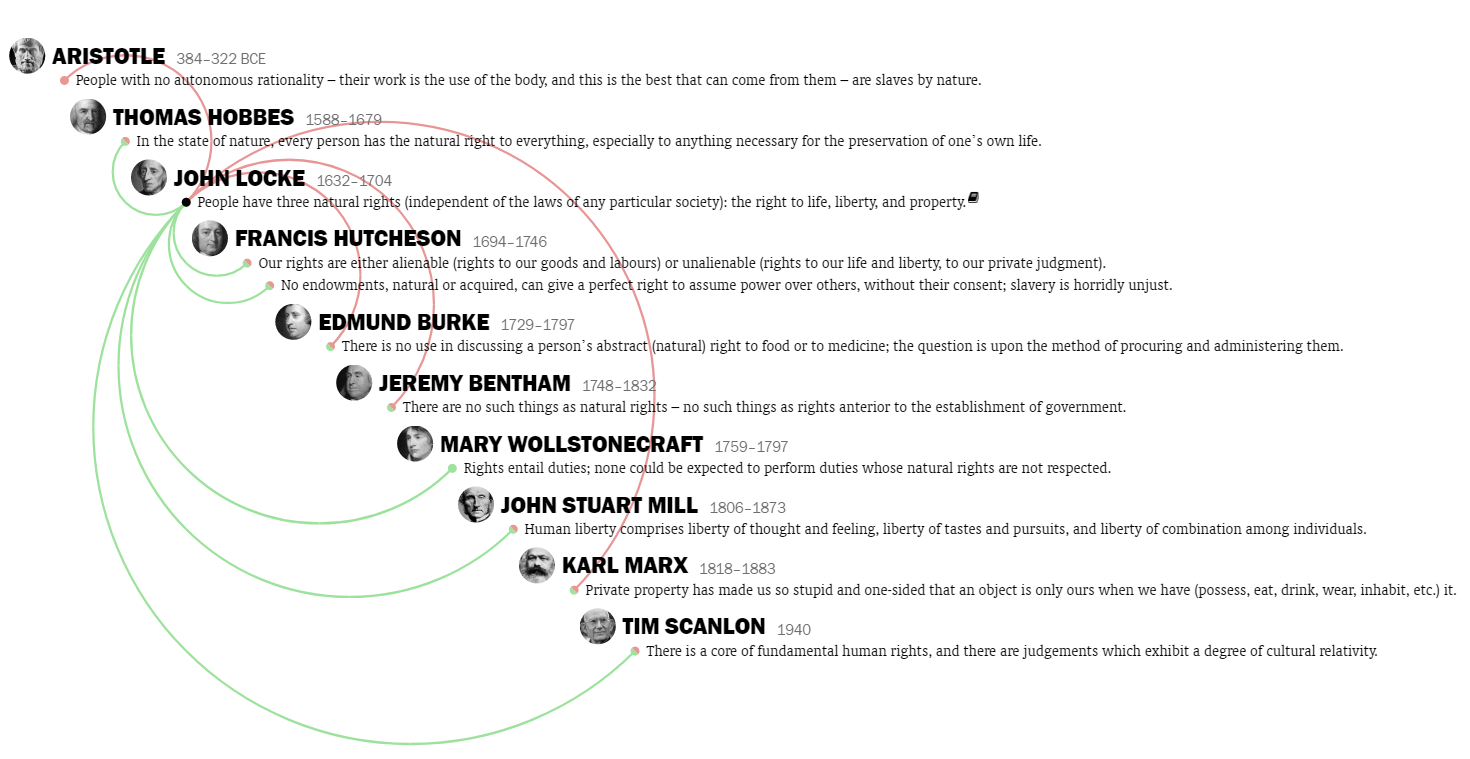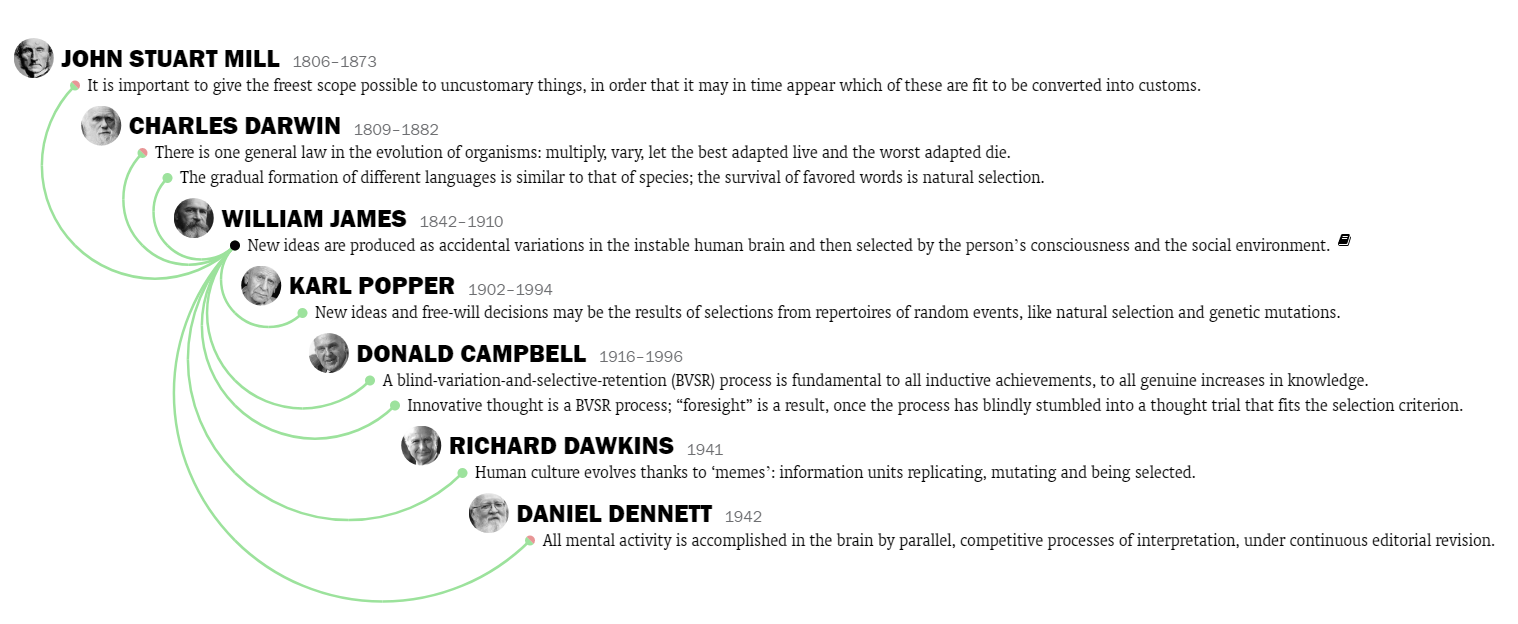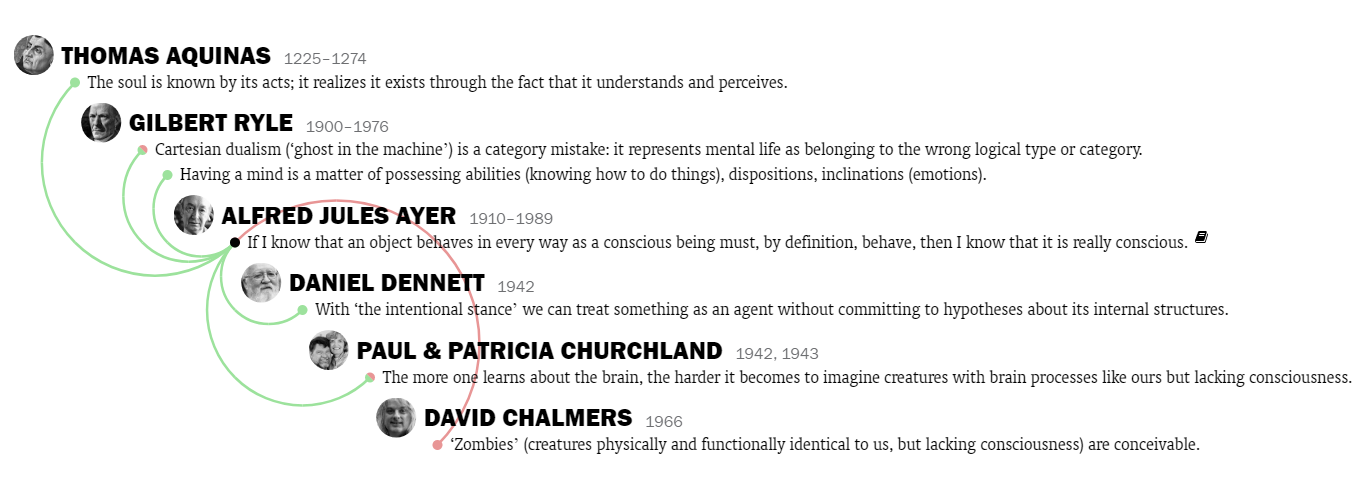Stebbing, Gramsci, Campbell, Geach, Lakatos Added; Ockham, Mill, Marx, Ayer, Fodor, and Others Updated
I’ve done a lot of work (in addition to the big interface upgrade) since May 2021 but I don’t know why I’ve waited this long to put together a blog post about it:
- I added Susan Stebbing, Antonio Gramsci, Donald Campbell, Peter Geach, and Imre Lakatos.
- I made substantive revisions with lots of new/edited sentences for William of Ockham (13), John Stuart Mill (14), and Alfred Jules Ayer (17).
- I added/edited sentences for Plato, Aristotle (2), Saint Augustine (5), Thomas Aquinas (5), Thomas Hobbes (3), René Descartes (2), John Locke, Francis Hutcheson (2), David Hume (2), Edmund Burke, Immanuel Kant (2), Jeremy Bentham, Karl Marx (6), William James, Franz Brentano, Friedrich Nietzsche, Gottlob Frege (3), Sigmund Freud, Pierre Duhem, George Edward Moore (4), Rudolf Carnap (2), Karl Popper, William Frankena, Wilfred Sellars, Donald Davidson (6), Richard Hare (2), John Rawls, Thomas Kuhn (4), Paul Feyerabend (5), Michel Foucault, Judith Jarvis Thomson (3), Luce Irigaray, Jerry Fodor (7), Frank Jackson (5), John McDowell (3), Richard Boyd (2), Daniel Dennett, and Paul & Patricia Churchland (3).
- I drew 915 new connections, making a total of 3978 (2418 positive, 1560 negative).
- I went through the whole thing (1562 sentences) to look for gendered language (man, mankind, he, his, etc.) and switched to gender-neutral terms wherever I could (with a few exceptions). This was something I’d been thinking about since the beginning; I was going gender-neutral when I paraphrased but I was on the fence about modifying direct quotations from the philosophers – I finally decided to go the whole hog. This is a non-academic, personal project after all. I have the power. Like He-Man.
Highlights
Since the interface upgrade in December, you can click on a philosopher’s name and go to a new layout where you see all sentences by that philosopher, along with the connections of those sentences. I’ll be using this feature as well for some of the screenshots for these posts. Here are Stebbing and Gramsci, for example:
[These far-away screenshots are not convenient for reading the text, obviously; you should use the interface to do that, zooming in/out.]
With Stebbing, Gramsci, and Ayer having strong opinions about what philosophy is or should be, this latest series of updates were fruitful for the metaphilosophy category.
My revision of Ockham led to updates for Augustine and Aquinas as well.
A note of caution about the famous Ockham’s razor:
Ockham did not invent this principle; it is found in Aristotle, Aquinas, and other philosophers Ockham read. Nor did he call the principle a “razor.” In fact, the first known use of the term “Occam’s razor” occurs in 1852 in the work of the British mathematician William Rowan Hamilton. Although Ockham never even makes an argument for the validity of the principle, he uses it in many striking ways, and this is how it became associated with him. (…) For Ockham, the principle of simplicity limits the multiplication of hypotheses not necessarily entities. (Sharon Kaye, Internet Encyclopedia of Philosophy)
The addition of Lakatos and the related updates in Kuhn and Feyerabend resulted in this intense bundle of connections.
I spent a few weeks on moral naturalism around Moore, Geach, Thomson, Jackson, Boyd, and others.
Supervenience and its application in ethics got more sentences. (Hopefully Jaegwon Kim will join in future updates.)
I also started to enrich the issue of rights and added ideas from the two sides of the natural/legal rights debate. (I’m with Bentham.)
The idea that there are high-speed evolutionary informational processes within the brain, underlying our decisions and creativity, was the backbone of my 2010 MA thesis (and the project Graphagos) and Donald Campbell was an important reference. So it’s nice for me to see his evolutionary epistemology and blind-variation-and-selective-retention (BVSR) included, with its antecedents in James and Popper, forming a group of various formulations and implications of the idea. I was also surprised to discover, while reading On Liberty, that Mill had a pretty evolutionary model of social progress – the book was published in the same year as Darwin’s Origin (1859).
Speaking of surprises, did you know Ayer was killing zombies before it was cool (1936)?
Since my last content update post was a year ago, there are many more highlights I could list here but I want to stop – it’s time I teach myself to publish more frequent posts with less content.
The usual reminder: You can browse the whole thing here.
Subscribe to Updates
Follow & Support
RECENT UPDATES
- New Force-Directed Graph with Philosophers as Nodes
- Zeno of Citium, Epictetus, Marcus Aurelius, Skinner, Plantinga, Block, Strawson, and Oppy Added; Hume, Rousseau, Brentano, Husserl, Wittgenstein, and Others Updated
- Poincaré, Eddington, Gombrich, Laudan, Van Fraassen, Worrall, Ladyman Added; Anselm, Duhem, Grice, Williams, Kripke, Lewis, Boyd, and Others Updated
- ‘Basics’ Filter for the Uninitiated
- Reid, Barthes, Habermas, Varela Added; Leibniz, Kant, Ramsey, Sartre, Beauvoir, Foot, Clark, and Others Updated
- Dynamic URLs

